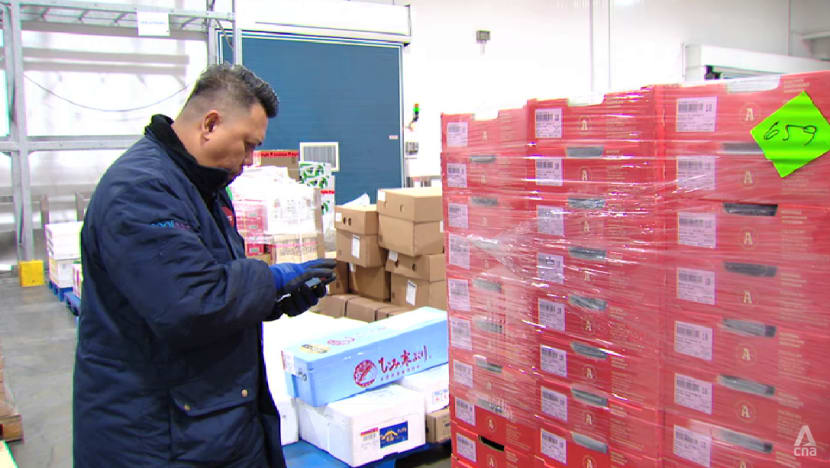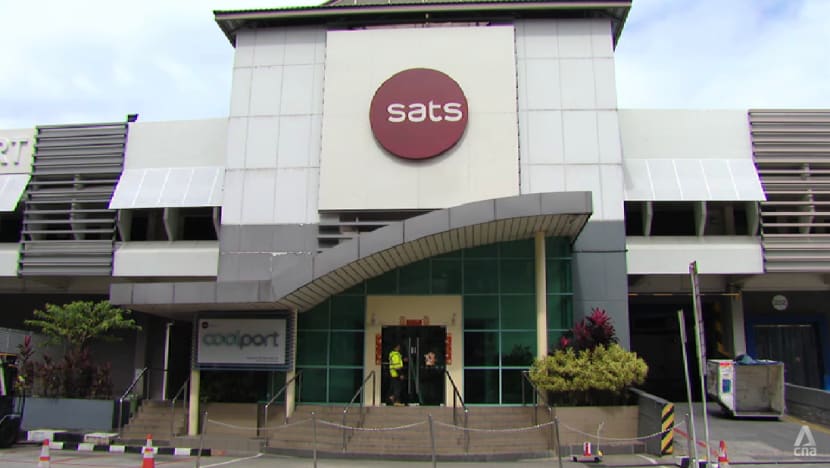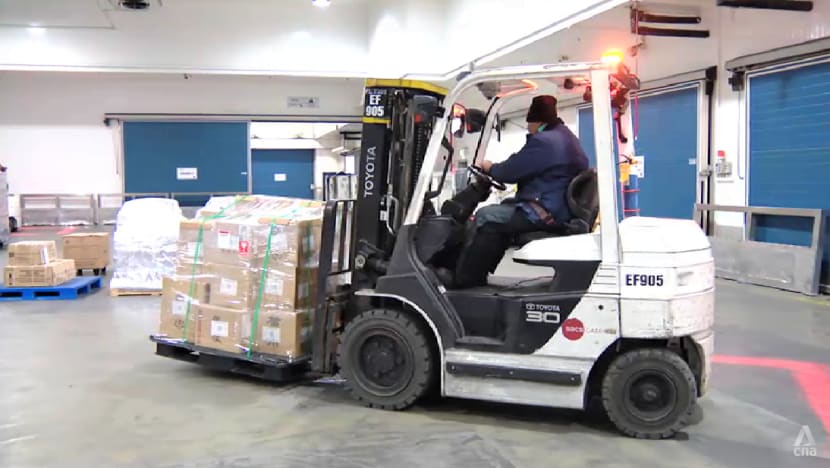How one cold chain facility is dealing with a jump in fruit and fish imports ahead of Chinese New Year
SATS cold chain facility is equipped with electronic temperature monitoring technology, and cold rooms with various temperature settings to handle goods that arrive via cargo plane with different requirements.

A staff at SATS Coolport using a device to help check information about deliveries.

This audio is generated by an AI tool.
SINGAPORE: Demand for premium food such as seafood and fruit from Japan is rising in the lead up to Chinese New Year.
SATS Coolport at Changi Airport, Asia's first perishable handling centre, has seen a 10 per cent jump in such produce ahead of the festive period compared to last year.
SATS Coolport’s cold chain solutions manager Parry Lim said: “In the lead up to festive seasons, typically, like your Christmas or Chinese New Year, about two to three weeks before the peak periods, we easily see a bumper increase in the volumes of cargo.”
MAINTAINING QUALITY OF GOODS
The storage space is equipped with electronic temperature monitoring technology, and cold rooms with various temperature settings to handle goods that arrive via cargo plane with different requirements.
But making sure these goods stay at the right temperature to maintain their quality requires clockwork precision. At the height of the COVID-19 pandemic, SATS Coolport played a critical role in keeping vaccines at the right temperature.
If a heavy shipment is expected, more manpower is needed.
“We roughly have an idea of which flights will have a heavy (amount) of perishable foods,” said SATS Coolport duty manager Nabeel Ayub.
“We try to pre-plan our peak periods. We will take our roster and we will plan accordingly.”

Staff at the centre understand that during any festive period, there will be a high demand of cargo and “there will be a lot of movement”, he added.
“This is the period that we have to help each other out.”
To cope with the demand, SATS Coolport has been training more new staff.
“For new joinees, basically they will attend our perishable and (pharmaceutical) training at our main training centre,” said Mr Nabeel.
“So once they are done with the training for about eight weeks, then they will come over to join us at the Coolport.
“We wouldn't be letting them (be) alone, driving a forklift or operating anything. So we will actually attach them with senior staff, that’s where they will go for on-the-job training.”
They also need to get used to the temperatures at the centre, which can go below freezing.

USING TECHNOLOGY TO COPE WITH DEMAND
At the purpose-built airfreight terminal, cold chain processes are continually being improved to ensure goods stay fresh.
SATS Coolport is optimistic that cargo volumes will recover to pre-pandemic levels this year.
Recently, workers at the centre have started to modernise to cope with rising demand.
Some are now equipped with devices that allow them to check information about deliveries by scanning a barcode, instead of manual clipboards.
These devices, introduced more than a year ago, have helped them shave off about 20 to 30 per cent of the time taken to process deliveries.
“The functions which are available on the device are quite useful, because first of all, we can check the airway bill correctly, to ensure that the cargo that we are going to deliver to our consignees are the correct cargo, and we can also know the exact location of the cargo,” said SATS Coolport cargo coordinator Armi Abdul Majid.
“So, that makes our work more efficient and faster, and makes the consignee (happier) to receive the goods earlier, so that they can deliver the items back to their consumers (fresher).”


















